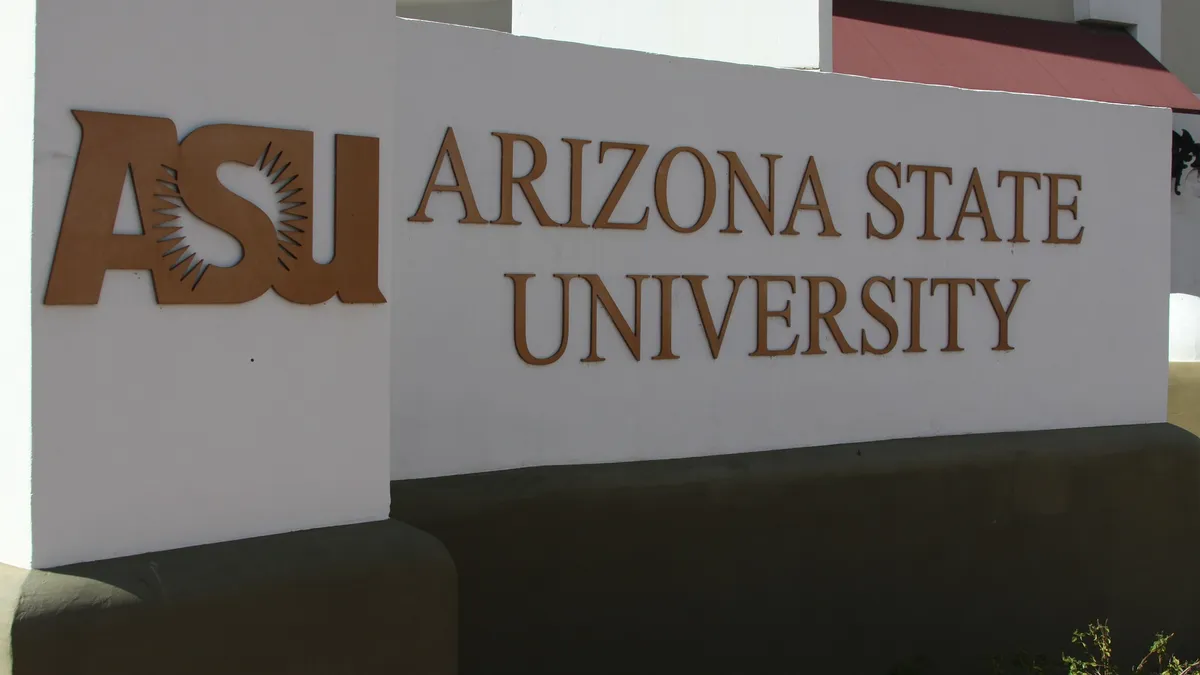Dive Brief:
- Arizona State University students are pressing for answers about a technology deal the university struck with publisher Cengage. The university's student senate last week passed a resolution calling on the provost's office to hire an external investigator to look into claims made by an economics professor at the university, The State Press reported.
- Igniting the controversy were allegations by the professor, Brian Goegan, that his department required students to buy a subscription to turn in homework through a Cengage portal. He further alleged instructors were told to fail at least 30% of students so an adaptive learning project between the provost's office and Cengage "was made to look good," according to an email Goegan sent to his students.
- In a statement posted online, Arizona State flatly denied Goegan was required to fail a percentage of his students. It also denied students were required to pay a fee to submit their homework, saying instead it had a deal for a bundled electronic textbook and interactive homework program that was less expensive than the textbook alone on Amazon.
Dive Insight:
Arizona State's deal with Cengage raises questions about the learning technology agreements that colleges strike, especially around how they affect student costs.
The university previously insisted it hadn't received payment from the publisher, according to The Arizona Republic, but a contract obtained by the newspaper shows the Arizona State shared revenue with Cengage from its deal on economics textbooks.
The contract stipulated for the first year — from spring 2017 to spring 2018 — the university would keep $21 of the $100 purchase price, after which it kept $1. The contract also entitles Arizona State to a small percentage of royalties for the use of the adaptive version of the course program that Cengage might license to other colleges. Arizona State provided instructional design services while Cengage fronted the capital to build out the program.
The university said in its extended statement that it was able to purchase a bulk discount on the textbooks and MindTap learning platform that made it less expensive than the textbook alone in retail outlets. It added that Goegan "was only able to 'save' his students these costs by simply refusing to actually use" the textbook and MindTap.
In response to Goegan's allegations, The Republic reported, students "publicly questioned the utility of MindTap and said it did seem like they were paying to submit homework."
In its statement, Arizona State said the MindTap platform gauges students' strengths and weaknesses with the material and "tailors follow-up questions to help with areas in which they are struggling and aid them in preparing to pass their exams."
In a recent survey of 249 college leaders, most (83%) reported that their campuses are undertaking more partnerships with private firms. The authors of a related report note such agreements are increasing as universities face intense financial pressure.
One major area for partnerships is online education. About one-third of the nearly 1,500 nonprofit colleges that have some students taking online classes partner with an online program manager (OPM), according to data from Tyton Partners. As a result, the OPM market has exploded, but not without criticism that the relationships have contributed to inflated costs for online programs.













